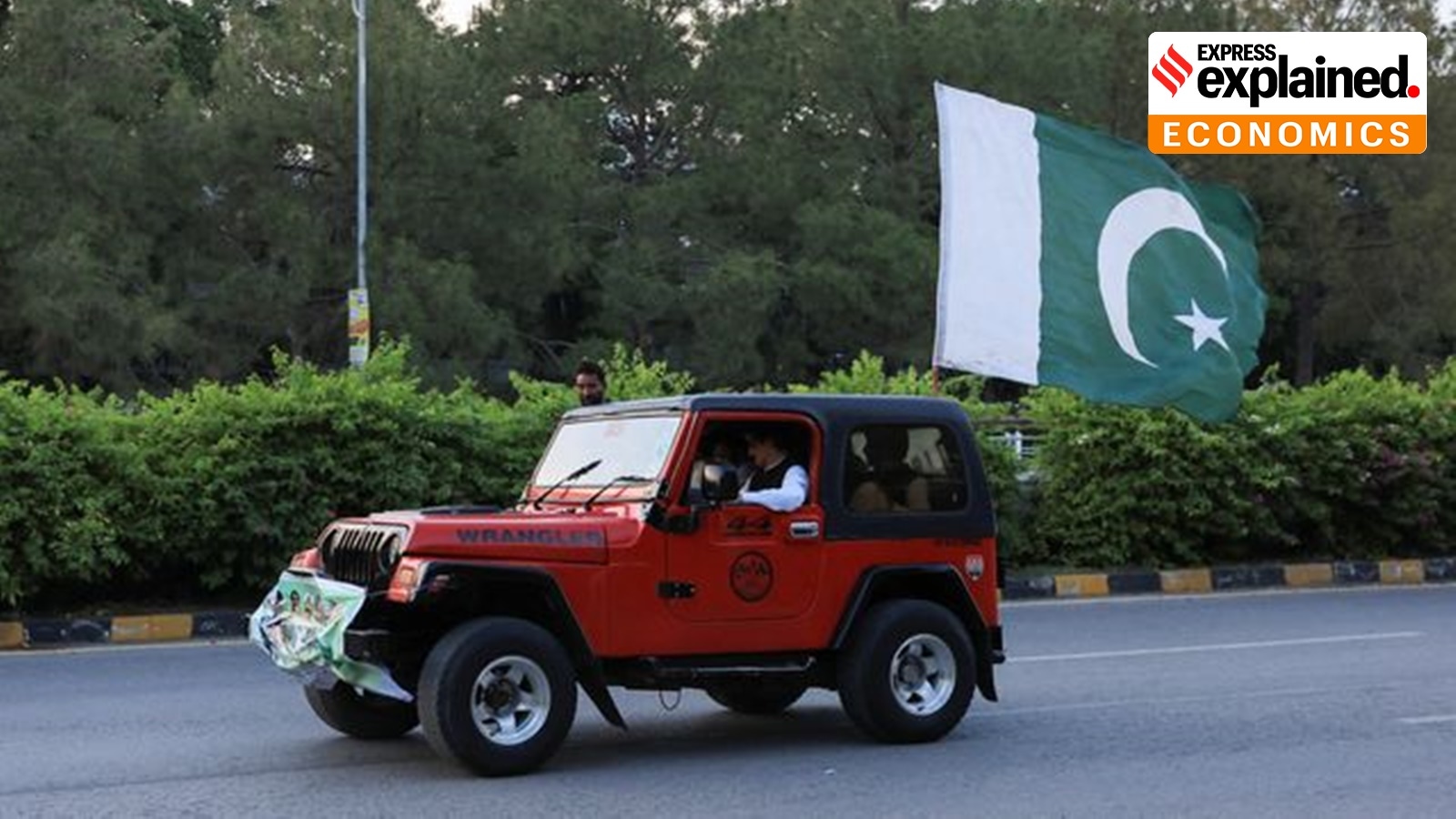IMF loan Approval to Pakistan: The Executive Board of the International Monetary Fund (IMF) on Friday (May 9) decided to allow for “an immediate disbursement” of $1 billion (around Rs 8,500 crore) to Pakistan. This disbursal was done as part of IMF’s Extended Fund Facility (EFF) to Pakistan.
The 37-month EFF was approved on September 25, 2024 and provides for a total disbursement of $7 billion to Pakistan. The latest tranche brings the total disbursements under the arrangement so far to about $2.1 billion.
The IMF Executive Board also approved Pakistan’s request “for an arrangement under the Resilience and Sustainability Facility (RSF), with access of about US$1.4 billion”.
Story continues below this ad
In the light of Pakistan’s military escalation against India, New Delhi conveyed its “strong dissent” to IMF’s decision. For its part, India abstained from voting in the meeting — there is no option with member countries to vote against such a decision — and highlighted Pakistan’s poor track record using IMF’s funds, pointing to the possibility of “misuse of debt financing funds for state-sponsored cross-border terrorism”.
What is the EFF? Is the money to Pakistan in the form of financial aid or loan?
According to the IMF, the Extended Fund Facility (EFF) “provides financial assistance to countries facing serious medium-term balance of payments problems because of structural weaknesses that require time to address”.
Put simply, the IMF provides assistance under the EFF to countries that do not have enough money to pay their bills to the rest of the world for the goods and services they import.
Moreover, the reason for this inability to pay has to do with “structural weaknesses” in its economy, that is, fundamental problems in an economy that hold back growth and development. These include economies with inadequate physical infrastructure or a lack of an educated workforce, where the government borrows in excess of its ability to pay back. Or where the financial and banking system is not well developed and as such fails to provide the capital required for businesses to grow.
Story continues below this ad
It is important to note that the assistance under the EFF is in the form of a loan that has to be paid back, and not in the form of a grant or aid. The term “extended” means that these countries need more time than usual to pay back the money because they need to bring about “structural” changes.
The IMF states: “To help countries implement medium-term structural reforms, the EFF offers longer program engagement and a longer repayment period.”
Why is Pakistan eligible for IMF’s EFF?
Even as it has strived to become a military power, since the 1980s, Pakistan’s economy has been becoming weaker by each passing decade. The country has been on the brink of bankruptcy for a while now.
Pakistan’s total GDP has been stagnant over the past decade — in fact, the $338 billion in 2023 was lower than what it was in 2017. While growth has stagnated, inflation has soared: the inflation rate (the rate at which the general price level rises over the past year) in the past five years has been 10.7% (2020), 8.9% (2021), 12.2% (2022), 29.1 (2023) and 23.4% (2024). In other words, a basket of goods that cost an average Pakistani Rs 100 at the end of 2019 was priced at Rs 215 by the end of 2024.
Story continues below this ad
The reasons for Pakistan’s growing indebtedness include gross economic mismanagement by successive ruling dispensations, high population growth, low savings rate, inadequate investments in social and physical infrastructure, and the low involvement of women in the workforce.
Over the years, Pakistan has been forced to borrow thousands of crores not just from the IMF — from which it has received 28 loans in the last 35 years — but also from several other countries and groupings such as China, the UAE, Saudi Arabia, the Paris Club, the Islamic Development Bank, the Asian Development Bank, and the Nordic Development Fund.
Why has the IMF approved the latest tranche?
It is important to note that the IMF’s decision has been taken after a formal “review” of the policy and administrative reforms undertaken by the Pakistan government.
The IMF states: “Pakistan’s policy efforts under the EFF have already delivered significant progress in stabilising the economy and rebuilding confidence, amidst a challenging global environment.”
Story continues below this ad
The IMF is satisfied with how Pakistan’s government has been able to reduce its overall borrowings. It also notes that inflation “fell to a historic low of 0.3% in April”. Further the “progress on disinflation” (which means the reduction in the rate at which prices increase from one period to another) and improvement in foreign exchange reserves has allowed Pakistan’s central bank to cut interest rates.
“The steadfast implementation of the FY2025 budget and the passage of key fiscal reforms, notably the Agricultural Income Tax, underpin the process of rebuilding policy making credibility,” states the formal IMF statement.


